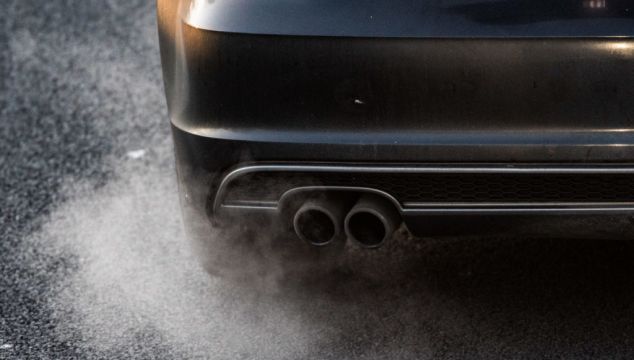Additional reporting by Vivienne Clarke.
It will be “extremely difficult” to meet reduction targets to stay within the State's carbon budget, the head of the Environmental Protection Agency (EPA) has warned.
The latest EPA figures show Ireland’s greenhouse gas emissions decreased by just 1.9 per cent in 2022.
The fall was driven by higher fuel prices, increased renewable energy, behavioural change and regulation.
It means 47 per cent of State's carbon budget for 2021-2025 has been used in the first two years.
The agency said an extremely challenging annual reduction of 12.4 per cent is required for each of the remaining years if Ireland is to stay within the budget.
Speaking to RTÉ radio, EPA director-general Laura Burke said: “If you look at the (12.4 per cent) reduction, that would be higher than we’ve achieved previously in Ireland, even during the recession.”
The EPA found that power generation emissions decreased by 1.9 per cent last year due to a reduction in coal, oil and peat use and more renewable energy.
Agriculture emissions fell by 1.2 per cent, driven by reduced fertiliser use which offset the impact of an increase in livestock numbers.
Residential emissions decreased by 12.7 per cent, influenced by the impact of higher fuel prices, new regulations that ban the use of smoky fuel and milder weather.
However, transport emissions increased by 6 per cent as the rebound to pre-pandemic levels continued.
The agency said current decarbonisation actions are being outpaced by increased energy demand across the economy and dependence on fossil fuels for energy generation.
It warned that a growing economy, with high employment, will continue to produce emissions if cleaner and alternatives sources of energy are not used.
Easier option
Meanwhile, a member of the Climate Change Advisory Council, Professor Cara Augustenborg, said public transport options must be "faster, cheaper, easier than driving your car would be" to help reduce emissions.
Electric vehicles are not going to be the solution to our transport issues, she told Newstalk Breakfast. "We're really going to have to be about much more public transport built rapidly.
"I think Brian Caulfield said it well — we have to build 50 years worth of transport infrastructure in 10 years. So we really need to accelerate the public transport infrastructure."
Prof Augustbenborg, who lectures in environmental policy at University College Dublin, said that while electric vehicles would have to be part of the solution, especially in rural areas, in urban areas better access to public transport was the solution.
There had been "a sigh of relief" at the latest emission figures, but that was not enough, Prof Augustbenborg said.
"At least the curve is finally bending, and I think that's really important when you keep in mind that while maybe we're not feeling it here in Ireland, we are in a climate crisis right now.
"We have experienced the hottest June on record, we have seen millions of people experiencing extreme heat right now. So we really, really need to see that number dropping."
Residential emissions
Prof Augustenborg said the most surprising result was in the residential sector, where emissions went up during the pandemic because people were at home and burning more fossil fuels. She added that domestic properties are also likely to be less energy efficient than offices.
The report noted emissions fell by 12 per cent in the residential sector.
"The really good thing about that is it wasn't just attributed to the energy crisis, that obviously drove people to conserve, but also because last year the Government passed legislation around smokeless fuels and smoky fuels, and that saw a reduction in people burning coal and peat, which not only had a very beneficial effect on climate, but also a positive effect on people's health."
Unfortunately, historically in Ireland, when emissions rise it is usually because of "some kind of crisis", Prof Augustenborg said.
"We saw it in the financial crisis — we saw a drop in emissions because there was less transport going around the country, and we've seen it in this case too, that a lot of the drops that we saw across all the sectors was related to the energy crisis, particularly in agriculture.
"We saw a 1.2 per cent drop in agriculture, but it was attributed to the cost of fertilizer and access to fertilizer, and these are the kind of changes that actually we don't want, and this is because of active policies that the Government has put in."
"We don't want it to be at the whim of an energy crisis or financial crisis," she added.
Prof Augustenborg said Government intervention is needed to provide more sustainable decisions and options in public transport.
"It should be easier for people to access public transport. It should be obvious to take public transport because it is faster and cheaper."
The carbon targets were not out of reach, she said, but it was going to get harder and harder.
"We'll have to reduce emissions by about 12.5 per cent per year for the next three years to be able to achieve that carbon budget.
"If we don't achieve it, it will go into the next budget, which will be even harder to achieve. So the longer we do this, the more difficult it is to achieve these legally binding targets."







